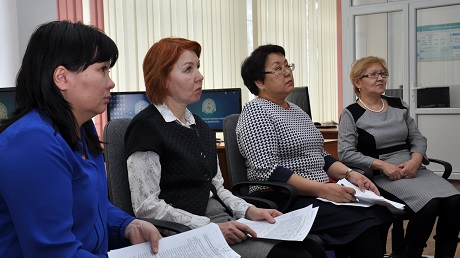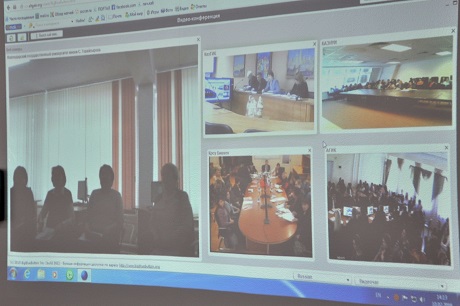Scientist of S.Toraighyrov Pavlodar state university took part in international research and practice online seminar “International communication: problems, experience, prospects”.
Organizer of event was the center of intercultural communications of Altai State institute of Culture.
It will be remembered, that collaboration agreement, in terms of which students, lecturers and employees of the university can do internships and practical training, develop joint research projects, hold international conferences and seminars was signed between S.Toraighyrov PSU and Altai State Institute of Culture in November, 2015 within the days of Altai culture in Pavlodar.
Doctors of Science, scientists, professors from Russia, Tatarstan, Kazakhstan, and Kyrgyzstan took part in the seminar.
Topics for discussion were the main factors of intercultural communications, causes and character of inter-ethnic conflicts in today’s world. Great attention was paid to study the experience of inter-ethnic cooperation in multinational region, preservation and transmission of national-cultural traditions, spiritual and moral aspects of intercultural communications. Furthermore, issues of religious differences as socio-cultural boundary were discussed; modern trends of intercultural cooperation in education, role of mass media in formation intercultural competence were noticed.
According to Maira Kozhamzharova- the Head of the Department of Philosophy, Social and Human Disciplines of Pavlodar State University, Candidate of Philosophical Sciences, Associate Professor, such terms as “intercultural competence”, “intercultural education” have come into methodical use since 90s of XX century. Great variety of languages and cultures became the means of mutual understanding and enrichment, and the means of creative development of social-active and independent personality, which is one of the main objects of all education institution.
Mayra Kozhamzharova says: “With the aim to integrate in the world scientific and educational space, intercultural interaction is priority direction of the development of our university. This is important also because representatives of more than 60 ethnic groups study in our university”.








